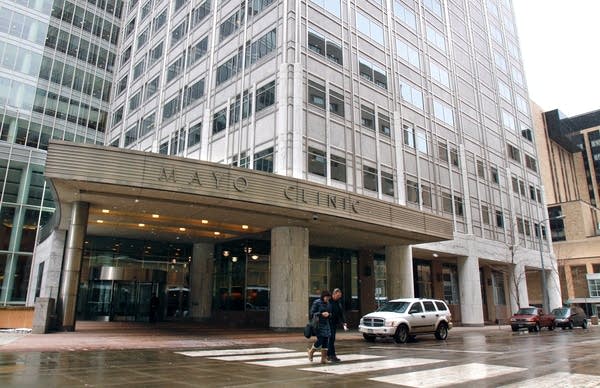Mayo Clinic lands data partnership with Google

Pedestrians cross the street as they leave Mayo Clinic's Gonda Building in Rochester, Minn., in January 2016. Mayo Clinic is joining with Google on a partnership to use artificial intelligence to improve care of rare and complex diseases.
Alex Kolyer for MPR News 2016 file
Go Deeper.
Create an account or log in to save stories.
Like this?
Thanks for liking this story! We have added it to a list of your favorite stories.


